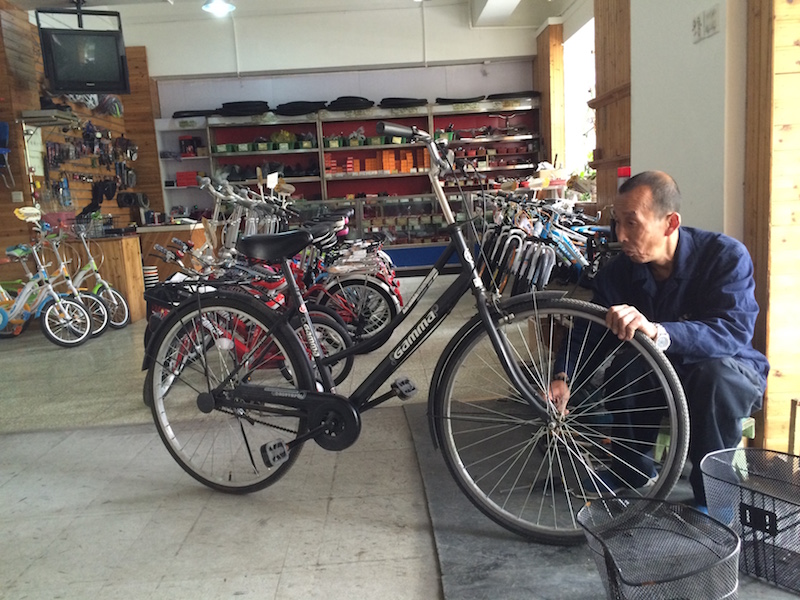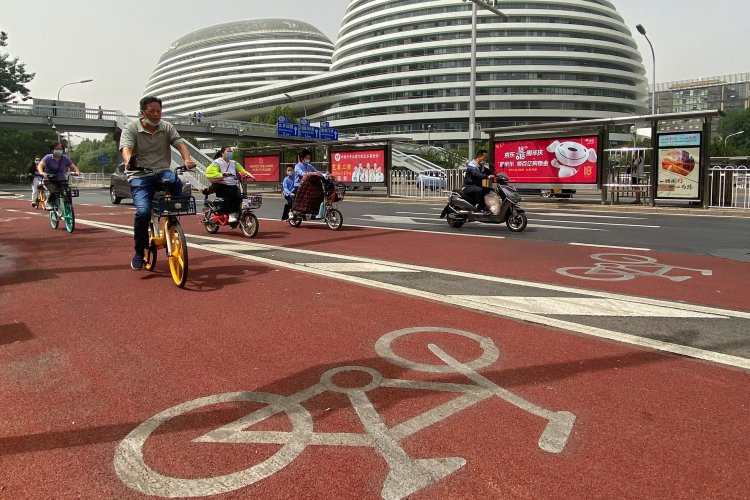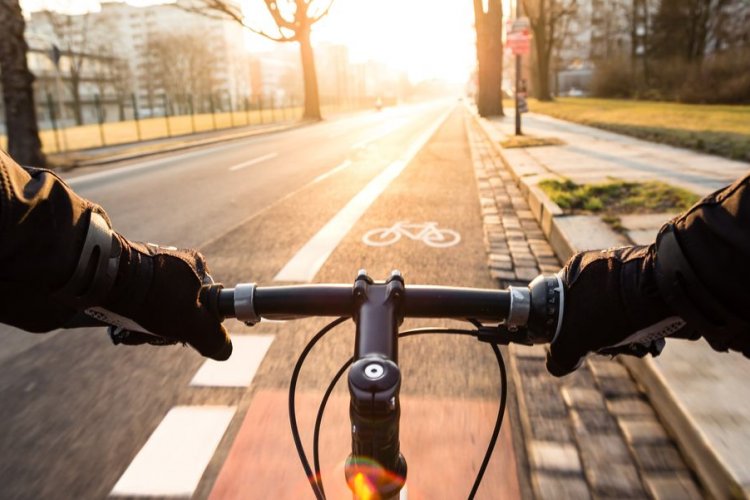Will Mobike, OFO, and Other Shared Cycles Leave Old Fashioned Bike Shops in the Dust?
Chen spins the front wheel to see if it turns smoothly, watching the spokes blur together. Satisfied, the Beijing Wujiaxing Bicycle Sale Centre repairman wipes his fingers on his coveralls until they're free of grease, and wheels the bike over to his customer.
But for Chen, that sense of accomplishment is fleeting, just like that wheel losing momentum and creaking back to a standstill. Though he and his colleagues at the Gongti East Road shop still repair and sell bicycles for a steady number of patrons, they can't help but worry about competing with the slew of Mobikes, OFO's, Bluegogo, Youon, Uni, and other shared cycles that litter Beijing's streets.
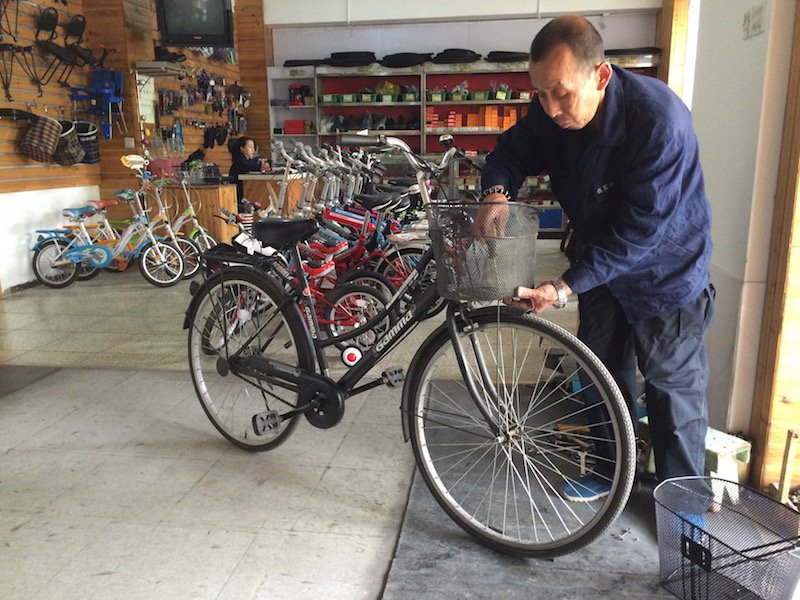
Wang Jiang, Chen's colleague who works the shop's cash register, says the situation "is a little bit troubling. It's possible that many bike shops might close, because people are in such a rush these days and OFO, Mobike, and the others are so convenient," she says – as Chen gruffly scoffs and nods in agreement all the while – of the shared cycles that prominently came on the scene last summer, quickly becomming ubiquitous across town.
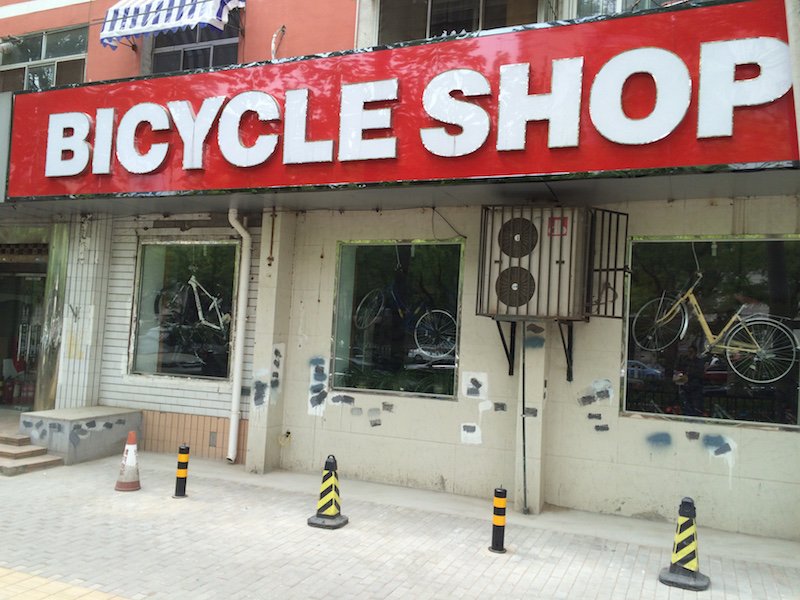
The popularity of these newer shared bikes is due in no small part – according to noted tech commentator Matthew Brennan – to the their locks that can be opened with a simple QR code scan, the relatively cheap fares that can be paid via a mobile app, and the ease with which they can be picked up and parked. "Unlike more traditional forms of bike rental, with docking stations, we can now pick up the bikes and leave them wherever," says Brennan, who has written extensively about bike sharing (see here and here) and co-hosted a podcast about the topic for leading IT publication Tech Node. "I also like that you can pay online without topping up a card, and even use OFO and Mobike in WeChat without downloading the apps. They've made the whole process very frictionless."
For Florian Bohnert, a spokesperson at Mobike, it's obvious why many Beijingers choose shared cycles over purchasing bikes of their own. "It makes for a reliable, affordable urban commute," he says, before citing the shared cycles' GPS functions and other features as major conveniences."

Such assertive claims may lead one to assume that Beijing is bitterly divided into two camps: casual shared cyclists, and diehard, deeply threatened bike shop devotees. But Qiu Xiaoping has a more nuanced take. The sales manager at Ai Ma Dian Dong Che (爱玛电动车) in Tuanjiehu's Tianyu market, where he sells ebikes and bicycles, is quick to say that he doesn't like shared cycles, and yet he can't deny that "there's a lot of people now that take the subway, get out at their stop, then ride a shared bike from there to home. These new bikes are perfect for that, and it's good to see people getting more exercise."
Yuan, a manager at UCC bike shop in Beixinqiao, is even more generous on the matter. She freely admits "I also use these shared bike apps myself from time to time," before touching on the point that just might save Beijing's bike shops from being left in the dust by shared cycles: "Mobikes and the others are so convenient that many people will use them, but I don't think they will affect more dedicated riders' love of sports bicycles."
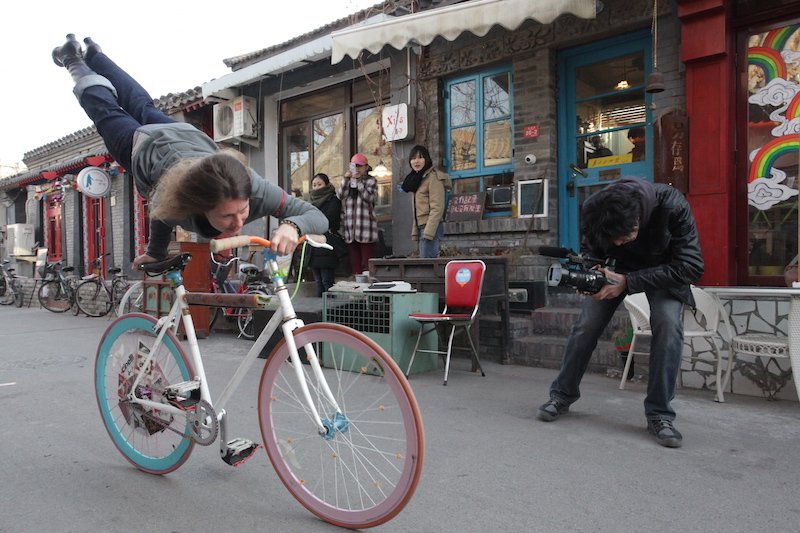
Ines Brunn, founder and owner of Natooke bike shop in Wudaoying, says her business has also shifted gears in favor of more serious bikers as of late. That appears to be an especially wise move since the shared bike craze took hold of Beijing. "We used to rent out single speed bikes more frequently. Now we rent out bikes to people who want to ride (our own) Natooke bikes."
There are other specialized paths for such bike shops, according to Freda Foo, who handles day to day operations at Natooke. She says: "Very few tourists use shared bikes, and there's still a number of foreigners living in Beijing that don't want to use them. So many people would still like to rent bikes from us."
And while Yuan and Foo both admit that their sales have decreased as of late, they're both still staying optimistic and don't blame shared cycles for that decline, at least not entirely. Foo, for instance, says: "I hope that after people try shared bikes, they'll enjoy it enough to want to have a bike of their own."
The switch from trendy shared cycles to ownership of a conventional bike might become more common than expected, thanks to new restrictions on the Mobikes, OFOs, Bluegogos, and other varieties that are haphazardly parked in courtyards and on sidewalks across town. One reader, for instance, left a critical comment on the Beijinger's earlier blog about designated parking zones for such shared cycles, writing: "Hey, use our bikes! Why? Because there's no docking stations, park and pick them up wherever!" *3 months later* "Lol jk.'"
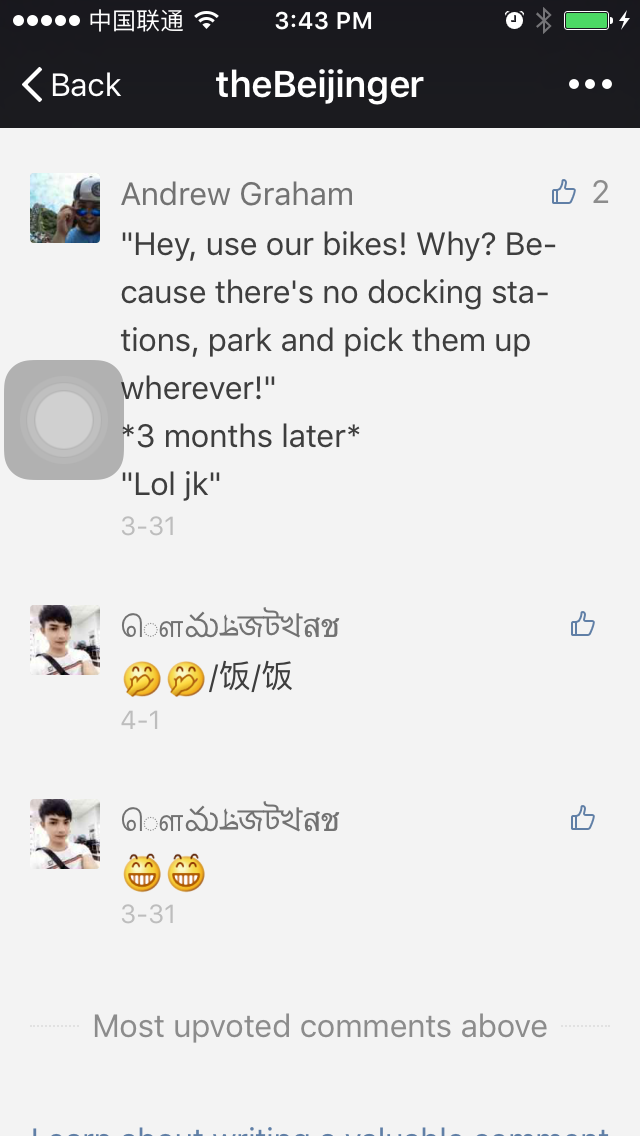
That being said, Bohnert doesn't forsee those new restrictions lessening the popularity of Mobikes and other shared cycle brands. On the contrary, he says it's "something we support, and they [the new restrictions[ will help to provide an even safer and more reliable service to users and further increase the attractiveness of our brand."

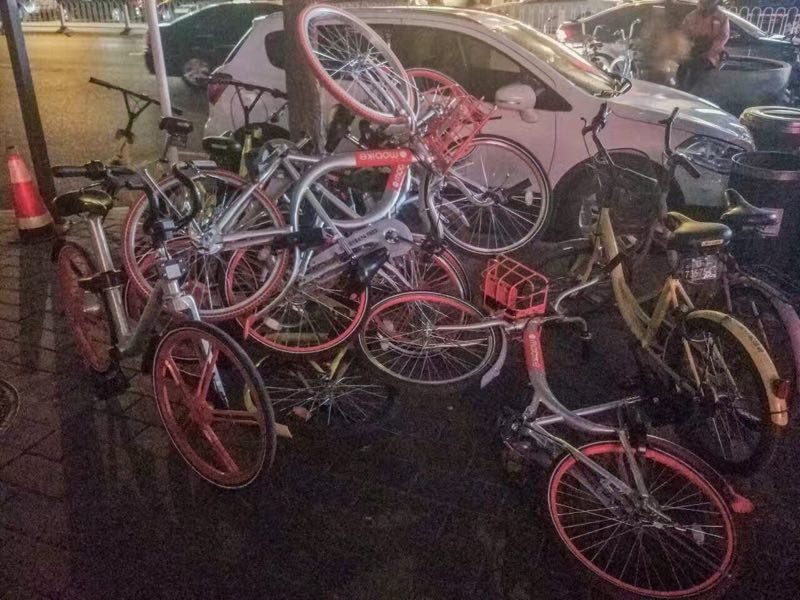
Despite such bumps in the road for both cutting edge shared cycles and more conventional bikes, Brennan is confident that providers of both will be able to adapt. "I think the whole biking industry will be completely changed by this, but it hasn't rendered traditional bikes obsolete. There'll always be people who want higher end or better expierience mountain biking," he says, all but echoing Foo's thoughts on the matter."
However, Qiu doesn't share that optimism. After all, the same modern conveniences, like the apps and a shared economy that allowed shared bikes to become so popular, are cutting into his more conventional business without offering him similar high tech benefits. He tried, for instance, to supliment the shop's income by selling bikes and parts on Taobao. But it proved to be a fruitless effort because "selling online is too competitive, and customers don't find it convenient to buy a bike there. So that makes me worry about how successful our business can be."

Yet, as an avid cyclist, Brunn can't help but be inspired by Beijing becomming a bikers' haven once again, albeit in a much different way than before, saying: "I am always happy to see more people on bikes, especially in big congested cities like Beijing."
More stories by this author here.
Email: kylemullin@thebeijinger.com
Twitter: @MulKyle
Photos: Kyle Mullin, Yuan/UCC, QQ News, Arvi Lefevre, Bike Share

